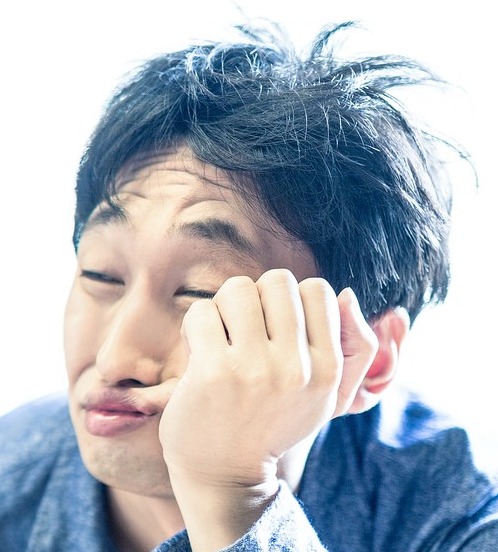Did you know “The joke bombed” is used as すべる?
When your friends said jokes and nobody laughed at their jokes, what do you usually say in Japanese? Is that 面白くない(That isn’t funny.)? Actually, which is correct. However, we have an identical word for that in Japanese and which really sounds native speakers. Let me introduce how to correctly use it today!
(ギャグなどが)すべる (suberu)
The joke bombs.
すべる(suberu) is “The joke bombed.” or “The joke left them cold.” which means “Nobody laughed at his/her joke”. This is one of the slangs, however, everybody could use すべる ranging from children to adults. The original meaning of すべる is “Slip” but after the joke bombed, it left them cold -> that makes ice -> ice is slippery. So すべる(slip) has been used as the meaning of “the joke bombed”. すべる(present tense) or すべった(past tense) has been basically used after someone’s joke bombed. One of the famous comedians made this word and spread.
すべる(suberu) is “The joke bombs.” or “The joke leaves them cold.” which means “Nobody laughed at his/her joke”. The basic way to use it “___がすべる”, etc. For instance, “その冗談がすべる。(The joke bomb.)”, etc. Everybody could use すべる as casual and polite such as “すべったね。(The joke bombed.)” as casual “すべりましたね。(The joke bombed.)” as polite. Although an original meaning of すべる is “Slip”, after the joke bombed -> it left them cold -> that makes ice -> ice is slippery. Thus すべる(slip) has been used as the meaning of “the joke bombs”. すべる(present tense) or すべった(past tense) has been basically used after someone’s joke bombed that means “The joke wasn’t funny.”. One of the famous Japanese comedians made this word and spread. Lastly, native speakers usually omit “その冗談が” of “その冗談がすべる。”, so that would be “すべる”.
\ Learn Japanese language online with a personal native teacher!/
Sample
すべったね。草 (The joke bombed.haha) (都冷場了。靠) (실패했네, 하하.) (Đùa chẳng có gì vui nhỉ. Haha.) (subetta ne. kusa)


すべってないよ。 (The joke didn’t bomb.) (才沒有冷场。) (실패한 거 아냐.) (Đang đùa vui mà.) (subette nai yo.)


だいぶすべってるよ。 (It really bombed.) (气氛几乎都冷下来了喔。) (별로 안 먹힌 것 같은데.) (Đùa không vui tí nào.) (daibu subetteru yo.)


かもね。笑 (Perhaps.haha) (也许吧。哈哈哈。) (그런 것 같다. 하하.) (Có khi thế thật (cười).) (kamo ne. wara)


ニューヨークで入浴(ニューヨク)! (Taking a bath in NY.) (在纽约(纽约)沐浴!) (차이나에서 고백하면 차이나?) (Tắm ở New York! (Chơi chữ)) (nyūyōku de nyūyoku!)


すべってるよ。笑 (The joke bombed.haha) (现在闹冷场中呢。笑) (완전 썰렁해. 하하) (Thì đang đùa không vui mà. Hehe.) (subetteru yo. wara)
\ Learn more! /









Comments